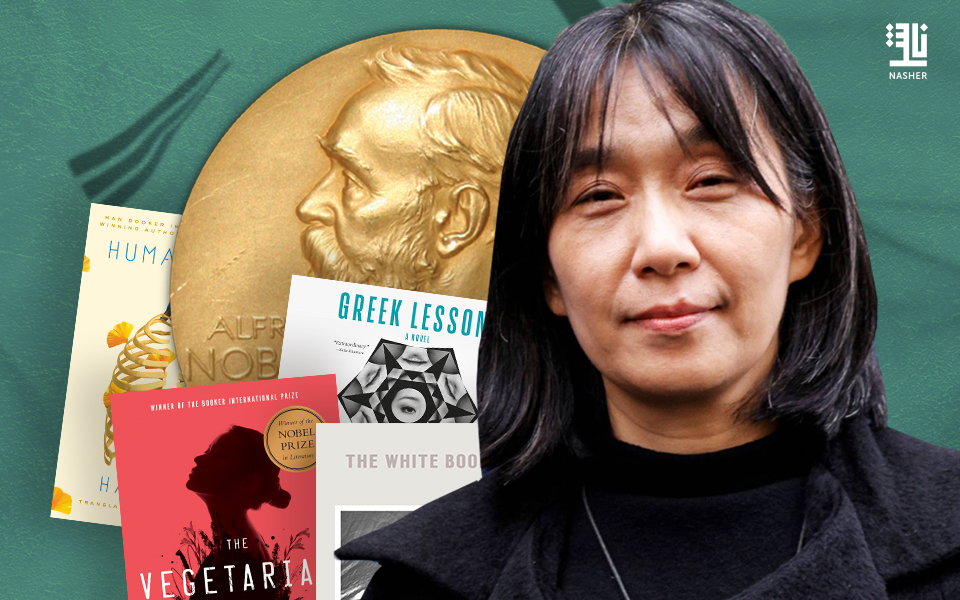The Nobel prize in literature has been awarded to 53-year-old South Korean novelist Han Kang for her “intense poetic prose that confronts historical traumas and exposes the fragility of human life”. Her works include The Vegetarian, The White Book, Human Acts and Greek Lessons.
Han Kang, South Korea’s first winner of the Nobel Prize in Literature, was slow to secure global acclaim, getting her first big international prize nine years after her best-known novel was published, once it had finally been translated into English.
The long wait for the translation of “The Vegetarian”, which won the 2016 Man Booker International prize, seemed to prove the observation of Han’s father, himself an award-winning novelist, that it was the kind of book that “goes straight into the drawer”.
Although the novel went on to be translated into dozens of languages, “The Vegetarian” had sold fewer than a million copies back home before Thursday’s announcement by the Swedish Academy, largely because of relatively low readership of literature among South Koreans and a languishing publishing industry.
Han’s compatriots were making up for lost time on Friday, mobbing bookstores for her novels, poetry and short stories. The prize for literature is awarded for an author’s full body of work, not a specific text. Like all those awarded the Nobel Prize, Kang has won 11m krona ($1.1 million) for the prize.
“I’m so surprised and honored,” Kang told the Nobel Museum in a phone call soon after she learned about the honor. “ So I can say I grew up with Korean literature, which I feel very close to. So I hope this news is nice for Korean literature readers and my friends, writers.” She went on to say she will celebrate “quietly” by having tea with her son.
Kang is the first South Korean person and the first Asian woman to win the Nobel Prize in literature.
Kang, 53, has been a writer for over 30 years, but The Vegetarian—first published in 2007—was her first novel to be translated into English in 2015, and received widespread acclaim and attention. She has won prizes including the Manhae literary prize and the Kim Yujung Literary Prize for her other work
Literary critic Oh Hyung-yup, a professor at Korea University, said Han’s award was a win for long-standing efforts to translate Korean literature for a global audience already familiar with South Korea’s buoyant pop culture.
Han, 53, the 18th woman to win the Literature Prize, was born in Gwangju, where she lived until age 10, when her father, Han Seung-won, moved the family to the capital Seoul.
She was not in Gwangju to witness the massacre of hundreds of students and unarmed civilians by the military in May 1980, after a coup d’etat. But she explored the historical trauma of the crushed democratic uprising in her novel “Human Acts”. The events carved a searing impression in her of the “conundrum” that people can be harrowingly violent but also risk their lives to help others, she said in 2021.
“When I try to talk about human beings, I think I have to get through Gwangju in May and, as always, there’s no way to get through it other than writing,” she said.
Asked to describe Han as a writer in one sentence, her father said: “She is a good young novelist who writes with poetic sensibility.”
Besides her father, a prolific writer whose novels are often set in his coastal hometown, her brother is also a novelist.
After graduating from Yonsei University with a major in Korean literature, Han worked for a literary journal before making her debut in 1993 with a collection of poems, followed by a collection of short stories.
Private but not reclusive, the soft-spoken Han became a constant presence on South Korea’s literary scene, publishing novels as well as short-story collections and children’s books.
Her first published works were five poems in 1993, and she made her debut in fiction the following year with a short story. The Vegetarian, the book that boosted her global profile, is about a woman who chooses to stop eating meat after having violent dreams about animal slaughter. It explores themes of isolation, social conformity and violence. Han’s latest novel, “We Do Not Part,” published in Korean in 2021 and due out in English next year, is a chronicle of the pain and torment that followed another massacre – one carried out in the late 1940s to early 1950s in the name of rooting out communists on Jeju island.
Published in French last year, it won France’s Prix Medicis for foreign literature. Besides the Booker prize, Han has received Italy’s Premio Malaparte for “Human Acts” and Spain’s Archbishop Xoan de San Clemente Prize for “The Vegetarian”.
The only other South Korean person to win a Nobel Prize is the nation’s former President Kim Dae-jung, who won the Nobel Peace prize in 2000 for his efforts to restore democracy in South Korea and for his “sunshine policy” toward North Korea.







